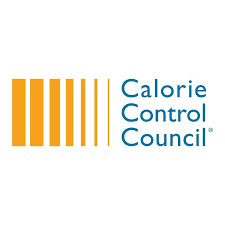Product of the Year: Microbiome Rejuvenate From Big Bold Health Wins the Immune Support Category
BAINBRIDGE ISLAND, Wash., July 14, 2023 (Newswire.com)
–
Each year, NutraIngredients-USA, the key news source for the functional food & beverage and dietary s…
The post Product of the Year: Microbiome Rejuvenate From Big Bold Health Wins the Immune Support Category first appeared on RSVTV news.
Improving Quality in Northwest Clinics Through Chronic Care Management

Northwestern Clinics Embrace CrossTx’s Chronic Care Management Solution to Enhance Patient Outcomes and Care Coordination

RN Care Coordinator with Patient
RN Care Coordinator with Patient
BOZEMAN, Mont., July 14, 2023 (Newswire.com)
–
Multiple clinics in the Northwestern United States recently demonstrated their commitment to address serious needs in their Medicare Beneficiary populations by adopting the Chronic Care Management (CCM) program. Although these clinics are already providing extensive medical services, by selecting CrossTx’s CCM business solution, they can further patient outcome improvements, enhance patient engagement, and address Social Determinants of Health (SDoH) while expanding reimbursement opportunities. The move to Value-Based Care models include the embrace of care coordination programs such as CCM and other Centers for Medicare and Medicaid Services (CMS) care coordination programs. CCM programs support and contribute to clinical quality measures by managing care for eligible patients with two or more chronic conditions. CrossTx’s cloud-based, purpose-driven software now enables Southern Coos Hospital and Health Center, Arbor Health, Southwest Healthcare Services, and South Lincoln Hospital District to track quality with comprehensive care plans, medication management, preventative services/health maintenance, and patient engagement, improving health literacy and transitions of care.
Pacific Northwest Clinics
Raymond Hino, the CEO at Southern Coos Hospital and Health Center, headquartered in Bandon, OR, embraces the focus on enhancing care coordination among the healthcare providers. “Chronic Care Management ensures continuity of care for our patients, allowing them to gain ongoing access to primary care services. Our care coordination program will promote a seamless care experience for our patients with chronic conditions.”
Morton, Washington-based Arbor Health will implement CCM programs as part of its mission to optimize care delivery and patient outcomes. Julie Taylor, Ancillary Services Director, elaborates on this patient-centric care strategy: “Chronic Care Management meets our vision to provide each patient with the best possible care. Through our care coordination program, we can better address gaps in care and thereby nurture healthy communities in East Lewis County.”
North Dakota and Wyoming Clinics
Rural health clinics in states like North Dakota embrace dynamic, patient-centric care coordination across vast patient catchment areas. The Practice Administrator for Southwest Healthcare Services, Melani Kline, RN, reports that their approach is to “optimize high-quality care for their patients by developing a comprehensive plan of care that enables them to better manage their chronic conditions. Using best methods, our staff members can address patient needs and optimize engagement while improving access to the appropriate level of care.”
In rural Wyoming, Jamie Linn, the Practice Manager at South Lincoln Hospital District in Kemmerer, WY, shares that their CCM program addresses overall timeliness of care and patient satisfaction. “Our CCM patients know they have an additional resource to help them navigate the complexities of healthcare. Through our program, we can bring a personalized touch while monitoring health outcomes and tracking clinical performance measures as related to chronic conditions.”
CrossTx provides an end-to-end CMS-compliant CCM business solution. Infusing foundational knowledge and expertise into in-house staff and/or local partners with dynamic, compliant and evidence-based workflows is key to initiating the program. Quality measures and collaboration with community-based care team members ensure gaps in care are addressed along the way. “Our technical team is dedicated to maximizing seamless interoperability with Health Information Exchanges and EHRs. Additionally, our cloud-based software minimizes inefficiencies across evidence-based care coordination workflows,” states Chad Nybo, CrossTx CEO. CrossTx supports continuous clinical improvement with world-class support and client success, while keeping staff current to best practices and CMS regulation changes. Chandra Donnell, CrossTx VP Client Success, says, “CrossTx concentrates our CS team’s focus on supporting tailored workflows and granularities in policies, while simultaneously looking at comprehensive reports that measure the program’s sustainability, quality measures, and other key performance indicators for our clinical network.”
About CrossTx
CrossTx, the leading CCM cloud-based platform for healthcare organizations, works with Rural Health Clinics, Federally Qualified Health Centers, independent physician-owned clinics and special carve outs such as Accountable Care Organizations, Independent Physician Associations, and Clinically Integrated Networks across more than two dozen states.
Thanks to a combination of purpose-designed software, compelling risk-sharing economic models, and data interoperability, CrossTx has emerged as the leading CCM platform for rural America. Learn more at CrossTx.com.
Contact Information:
Chandra Donnell
VP Client Success
406.595.1326
Original Source:
Improving Quality in Northwest Clinics Through Chronic Care Management
The post Improving Quality in Northwest Clinics Through Chronic Care Management first appeared on RSVTV news.
The Calorie Control Council Comments on the World Health Organization’s Review of the Safety of Aspartame

WASHINGTON, July 13, 2023 (Newswire.com)
–
The Calorie Control Council, an international association representing the low-calorie food and beverage industry, supports the World Health Organization’s (WHO) findings regarding the safety of aspartame, that aligns with more than 90 credible global scientific and regulatory food agencies that have extensively reviewed aspartame and determined it is safe.
JECFA is charged by the WHO to evaluate ingredients like aspartame and determine their safety. After conducting a thorough re-assessment, JECFA concluded there are no concerns regarding adverse effects of consuming aspartame at current levels and reaffirmed the acceptable daily intake level (ADI), underscoring its previous conclusion that aspartame is safe.
“The JECFA ruling not only confirms the four decades of science concluding aspartame is safe but also provides real-life context around the safe consumption of this ingredient,” said Robert Rankin, President, Calorie Control Council. “In order to reach JECFA’s conservative ADI estimates, the average 150 lb. person would need to consume about 14 12-oz cans of diet beverages or about 74 packets of aspartame-containing tabletop sweetener every day over the course of their life to raise any safety concern. Obviously, that level of consumption is not realistic, recommended, nor is it aligned with the intended use of these ingredients.”
“Consumers have a strong desire for reliable and science-based information and JECFA’s review reaffirms the overwhelming body of evidence that confirms aspartame is safe. To assert otherwise is misleading, inaccurate, and fearmongering to the nearly 540 million people globally living with diabetes and millions of others managing their body weight who rely on and/or chose products that contain low- and no-calorie sweeteners such as aspartame,” continued Rankin.
Consumers who look to low- and no-calorie sweeteners – including aspartame – for managing sugar and calorie reduction can continue to feel comfortable knowing it has been proven a safe and effective choice based on the findings of global health organizations which review the relevant scientific evidence regularly.
###
About the Calorie Control Council
The Calorie Control Council, established in 1966, is an international association representing the low- and reduced-calorie food and beverage industry. Today it represents manufacturers and suppliers of low-, no- and reduced-calorie foods and beverages, including manufacturers and suppliers of more than two dozen different alternative sweeteners, dietary fibers, and other low-calorie, dietary ingredients. More at caloriecontrol.org.
Contact Information:
Robin Applebaum
678.303.2980
Original Source:
The Calorie Control Council Comments on the World Health Organization’s Review of the Safety of Aspartame
